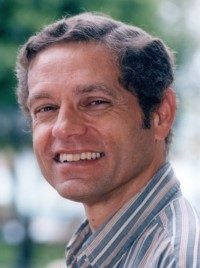Interview with Dr. Francisco Zaera

In honor of this year’s National Chemistry Week theme, “Fast or Slow…Chemistry Makes It Go!”, I traveled to the University of California, Riverside, to learn more about chemical reaction rates. When I think of a chemical reaction, I immediately think of what happens when you mix vinegar and baking soda together – it’s a fun reaction to watch, but messy! I could not wait to learn more about chemical reaction rates from my new friend, Dr. Francisco Zaera, Distinguished Professor of Chemistry!
Dr. Zaera showed me his office, and the laboratory where his graduate students and postdocs do their experiments. “I work with catalytic systems, and catalysis is all around us. A lot of industrial processes use catalysts to accelerate reactions, and catalysis is also used to remove pollutants from the environment,” he explained. When I asked how he did that, he replied, “I look into how reactions take place on solid surfaces, and how that relates to catalytic processes and to the creation of thin solid films (which are used for making microelectronics).”
One of the projects he worked on recently helped in the exploration of another planet! “I was recently an advisor for the NASA Jet Propulsion Laboratory, was responsible for deciding to use titanium nitride as the coating material of the tubes used to collect samples in the Mars 2020 mission,” he said. How exciting to be able to do chemistry that is used on Earth and other planets!
Growing up, Dr. Zaera’s favorite subjects were math and science. He explained that he decided to go into a science career because he had a “curiosity to know how things worked.” His father also encouraged him to do science experiments and projects. “My initial interest was in math,” he told me, “but then I entered a contest in high school to show how to design circuits where light can be turned on and off from several switches.”
I asked Dr. Zaera what he liked the most about his job. “The freedom to ask questions and try to answer them, and the chance to train others in science,” he said. The best thing about being a scientist is that it “is a way of life, a state of mind,” said Dr. Zaera. I am so thankful for scientists like Dr. Zaera. They remind you that chemistry is not only down to earth, but out of this world!

Personal Profile:
Favorite food? Plaintains
Favorite pastime/hobby? I like to travel and explore other cultures.
Very interesting project you were a part of? The 2020 mission to Mars

